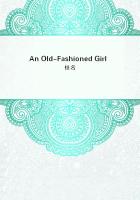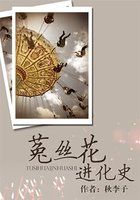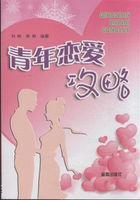At the close of the seventeenth and beginning of the eighteenth century, the Church of Scotland was composed of a somewhat heterogeneous mixture of covenanting ministers, who had lived in the times of persecution; of prelatic clergy whose convictions in favor of Episcopacy were not sufficiently deep to induce them to abandon their livings, and to suffer the annoyances and persecutions to which the more sincere non jurors were exposed and of a race of young men zealous for the Presbyterian establishment, but "only half educated and superficially accomplished." The conforming "curates" were commonly indifferent to religion of every kind, and it was hoped that they would soon die out, and that the heritors and elders, with whom the election of pastors lay, would fill the churches with a learned and zealous ministry.But, in 1711, the Jacobite government of Queen Anne took the power of election from the parish authorities, and vested it in the ancient patrons, being the Crown for above five hundred and fifty livings, and noblemen, gentlemen of landed property, and town-councils, for the remaining four hundred. The effect of this new law became visible in the course of years, in the appointment of persons to the churches who, for good reasons or bad, were acceptable to the government of the day, or were able to secure the favor of the private patrons.Forced upon the people in the first instance, there was a public feeling ready to gather round this law of patronage.From bad motives and from good -- like those which we have traced in England -- there was a desire among the upper, and a portion of the middle and educated, classes to have a clergy suited to the new age which had come in.As the result, there was formed a type of ministers which has continued till nearly our time in Scotland, called "New light" by the people, and designating themselves " moderates," as claiming the virtue of being moderate in all things, though, as Witherspoon charges {18} them, they became very immoderate for moderation, when they rose to be the dominant party.
Most of them refrained in their preaching from uttering a very decided sound on disputed doctrinal points; some of them were suspected of Arianism or Socinianism, which, however, they kept to themselves out of respect for, or fear of, the Confession of Faith, which they had sworn to adhere to; the more highly educated of them cultivated a refinement and elegance of diction, and dwelt much on the truths common to both natural and revealed religion; and all of them were fond of depicting the high morality of the New Testament, and of recommending the example of Jesus.It is scarcely necessary to remark, that this style of preaching did not gain, as it did not warm, the hearts of the common people, who either became callous to all religion, without any zealous efforts being made to stir them up, or longed and prayed for a better state of things.The enforcement of the law of patronage, and the settlement of ministers against the wishes of the people, led to the separation of the Erskines and the Secession Body in 1733, and of Gillespie and the Relief Body in 1753.In the Established Church there still remained a number of men of evangelical views and popular sympathies, such as Willison and Boston, who hoped that they might stem and ultimately turn the tide which was for the time against them.The boast of the moderate party was, that they were introducing into Scotland a greater liberality of sentiment on religious topics, and a greater refinement of taste.The charge against them is, that they abandoned the peculiar doctrines of the gospel, that they could not draw towards them the affections of the people who, in rural districts, sank into a stupid ignorance of religious truth, and, in the crowded lanes of the rising cities, into utter ungodliness and criminality, -- except, indeed, in so far as they were drawn out by the rapidly increasing dissenters, or by the evangelical minority within the Established Church.The collisions of the century took various forms.After the Union with England, dancing assemblies, theatres, and wandering players (with Allan Ramsay to patronize them), dancing on the tight-rope, cock-fighting, gambling, and horse-racing make their appearance, and receive considerable countenance and patronage from various classes, upper and lower; while {19} ineffectual attempts are made to put them down by civil penalties inflicted by burgher magistrates, and by public ecclesiastical censures, which the zealous clergy rigidly enforce, but which the new-light clergy are anxious to relax.In the turmoil of opinions which sprang up in this new state of things, there are rumors of deism, and even of atheism, being secretly entertained or openly avowed, and of the establishment here and there, in town and country, of "hell-fire clubs," where bold men met to discuss new opinions, and even, it is said, to act mock ceremonies, intended to ridicule the sacraments, and all that is awful in religion.Worse than all, and without being Much noticed, or meeting with much opposition on the part of the clergy of either party, there is the commencement of those drinking customs, which have ever since exercised so prejudicial an influence on the Scottish character.















